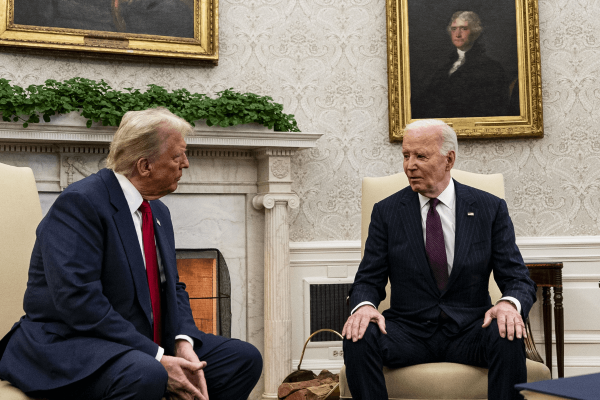Among the many foreign policy experts, former diplomatic and military leaders, intelligence officers, members of Congress and the Senate, editorial writers, and columnists who weighed in on Donald Trump’s killing of Iran’s top general, Qasem Soleimani, most noted a complete lack of strategy. But what they miss is that Trump has only ever had one strategy: doing whatever benefits him and his own political and financial self-interests.
No, Trump’s act of war did not “absolutely make America safer” — the lie that Secretary of State (now apparently Secretary of War) Mike Pompeo repeated on all the Sunday shows. Because of Trump’s newest attack, the Middle East is clearly more unsafe, further destabilized, increasingly volatile, and ever more dangerous for American troops in the region, their families at home, European populations, and the massive numbers of innocent Middle Eastern civilians who are continually displaced by endless regional conflicts — conflicts rarely mentioned in American news. The dangerous action put the whole world on edge as we watched in fear of further downward spirals of violence and its destructive consequences.
And, frighteningly, there’s nothing to suggest that the whole cycle won’t repeat itself.
The Trump strategy was politically demonstrable — and morally monstrous — as a deliberate, and initially successful, attempt to distract the media away from his impeachment trial in the Senate, his vulnerability to increasing evidence of his abuse of power and obstruction of Congress, and as a new part of his re-election campaign. And Trump’s white evangelical loyalists, many of whom gathered in Miami on Friday to praise the president and launch “Evangelicals for Trump,” were all too happy to tag in as surrogates and beat the drum of war in obedience.
But other voices also began to echo — including other voices of faith in the U.S. and around the world — saying that taking us to the brink of war with Iran was completely unjustifiable by any religious measures or merits. Indeed, while Trump was giving his press conference on Wednesday morning, I was in a deeply thoughtful and prayerful meeting with a broad group of national faith leaders trying to discern how to bring the message of peacemaking (in obedience to the instruction of Jesus) to this moment of such great danger. How, in the name of Jesus, could we call for de-escalation as a practical way forward? That message was already being shared and coordinated among faith leaders, churches, and institutions who are evangelical, Pentecostal, Catholic, Mainline Protestant, Black, Hispanic, and Asian-American — both in the United States and around the world. We are committed to supporting each other’s messages across the Christian spectrum.
As we watched and prayed, we were grateful to see that Iran was deciding to not further escalate the violence but take a longer view, saying that its response to the killing of Soleimani was “concluded,” and that the Trump administration was now apparently deciding the same in response — perhaps fearing public opinion or even understanding that the early echoes of faith voices would only get stronger. Trump’s white evangelical court chaplains now had nothing to say about Iran and could not stand up to the very unified and passionate faith opposition to senseless and dangerous war.
While we are grateful for the apparent mutual stand down, it is important to realize that this situation isn’t over, as the danger of further escalation is still with us. Jesus’ message of peace making, and not just peace loving, must continue to be lifted up with prophetic imagination to see how and where that can be engaged and communicated effectively.
The United States must now move back to diplomacy to address the problems between the U.S. and Iran and with the other regional and European players. After dangerously scrapping the most effective agreement to begin the denuclearization of Iran in the Iranian Nuclear Deal (JCPOC), which prompted all the recent hostilities we are now seeing, the Trump administration must come to understand that war is not the answer to the conflicts in the Middle East and has only made them all worse.
For those who say they are followers of Jesus, this is the time to call for and engage in the difficult but valuable and life-saving work of diplomacy and conflict resolution.
Specifically, I invite you to call on your representative today to support H.Con.Res 83*, which will put an end U.S. military actions against Iran without specific approval from Congress and prevent any further escalations between the United States and Iran without congressional approval. This resolution, introduced by former CIA Middle East analyst Rep. Elissa Slotkin (D-Mich.), would reassert the need for congressional oversight before engaging in military actions and would be a first step in helping to break the cycle of endless war we have been in for two decades now.
As Christians we must remain vigilant against the administration’s reckless and dangerous actions which push us to the brink of war.
Editor's Update: H.Con.REs 83 passed the House on Jan. 9.
Got something to say about what you're reading? We value your feedback!







